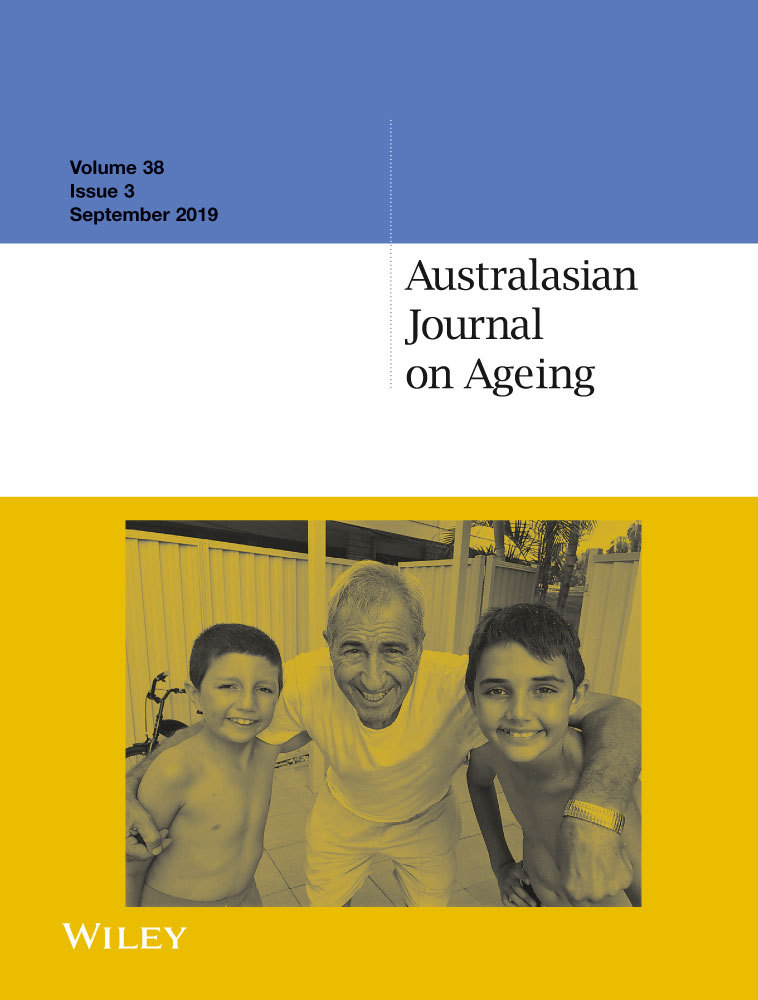The relationship between discharge medications and falls in post-hospitalised older adults: A 6-month follow-up
Funding information
This work was supported by Beyond Blue: The National Depression Initiative, Victoria, Australia (project ID 12182B).
Abstract
Objective
To identify discharge medications, especially psychotropic medications that are associated with falls, amongst older adults within 6 months following hospitalisation.
Methods
Negative binomial regression was used to examine relationships between discharge medications and falls in older post-hospitalised adults. Multiple regression that considered falls risk factors at discharge was performed.
Results
Data for 267 participants showed that discharge medications were not independently associated with falls postdischarge after adjustment for other falls risk factors. Male gender (adjusted incidence rate ratio [95% confidence interval, CI]) 2.15 [1.36-3.40]), higher depression scores (1.14 [1.05-1.25]) and co-morbidity of neurological disease other than stroke (5.98 [3.08-11.60]) were independently associated with an increased rate of falls. Higher depression scores (1.20 [1.11-1.31]) and co-morbidity of cancer (1.97 [1.20-3.25]) were independently associated with an increased rate of injurious falls in the 6 months postdischarge.
Conclusion
Falls prevention strategies, other than hospital discharge medication management in the postdischarge older adults, warrant investigation.
CONFLICT OF INTERESTS
The authors declare no conflicts of interest.




